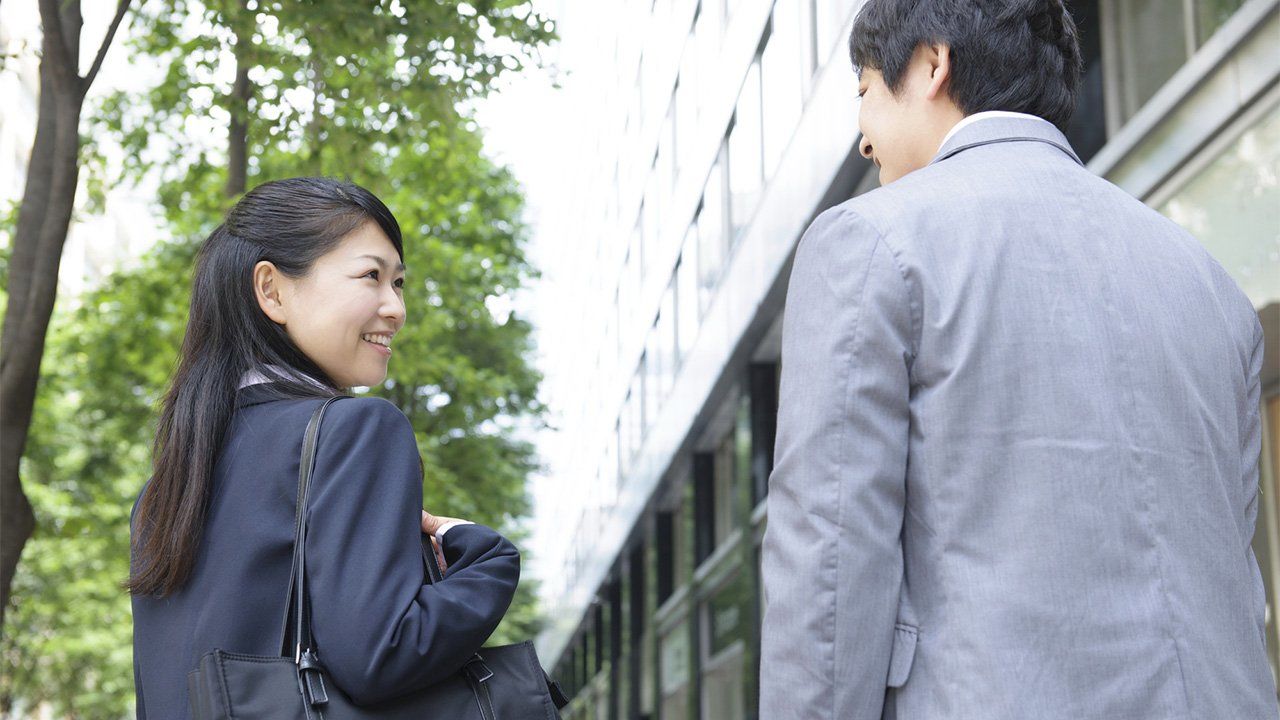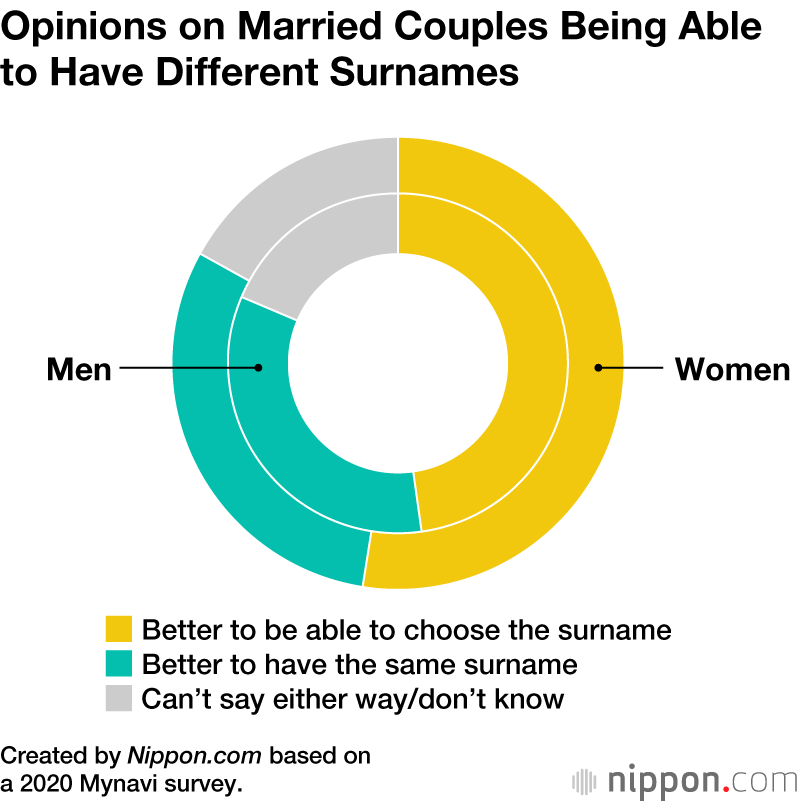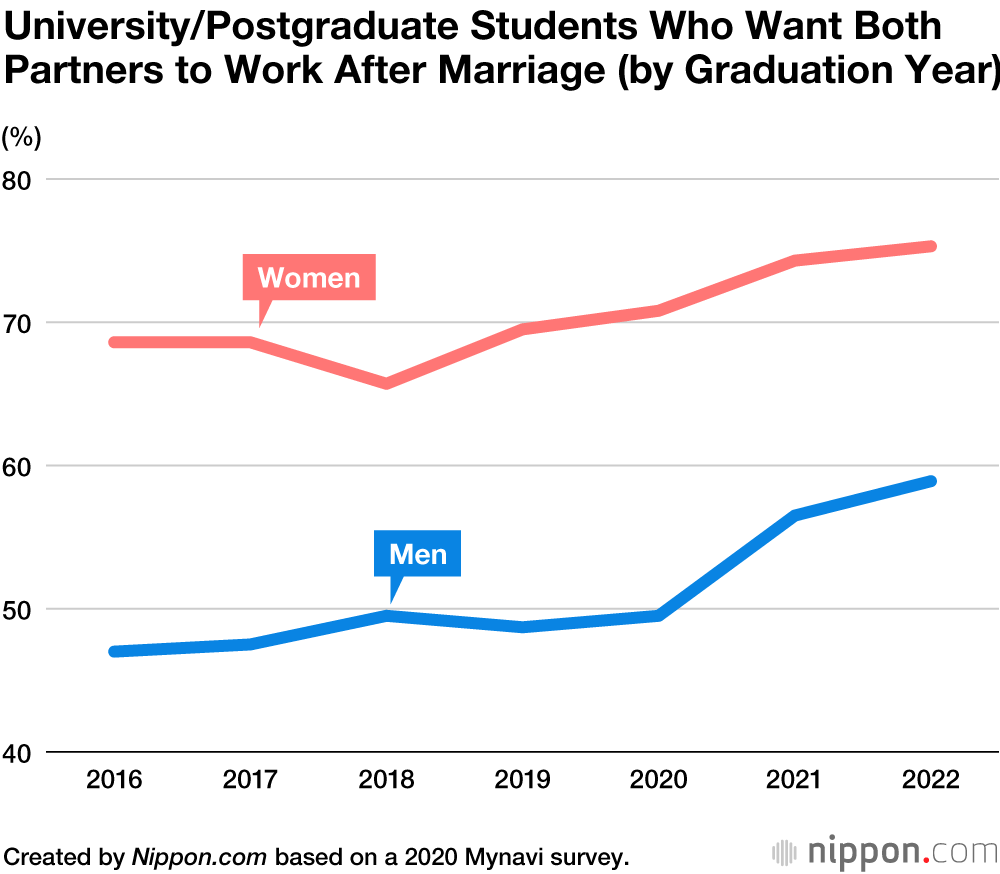
Student Survey in Japan Finds Support for Right to Separate Surnames After Marriage
Work Society- English
- 日本語
- 简体字
- 繁體字
- Français
- Español
- العربية
- Русский
According to the results of a lifestyles survey conducted by the job information provider Mynavi, approximately half of university and postgraduate students who will graduate in March 2022 back a system allowing separate surnames after marriage.
The online questionnaire survey was carried out during the period November 26 through December 23, 2020, and received 3,938 valid responses. Asked their opinions on a system that would enable them to choose separate married surnames, 33.6% of young men and 30.5% of young women said they felt it was better to have the same surname after marriage, as is currently the case. However, 47.8% of young men and 52.8% of young women answered that it would be better to have the choice to choose either the same surname or separate ones. A further 18.6% of young men and 16.8% of young women said they could not answer either way or did not know.
A total of 58.9% of young men (a 2.4-point increase from 2019) and 75.3% of young women (a 1.0-point increase) wanted both partners to work after marriage, both the highest figures since the survey started six years ago. The average age that young men wanted to get married was 28.5 and for young women it was 27.4, which remained a similar result to that of recent years.
The percentage of young men wanting to take childcare leave and proactively raise their children saw a rise for the sixth year running to 56.5% (a 5.0-point increase from 2019), narrowing the gap with young women as their percentage dropped to 69.9% (a 1.5-point decrease). When asked how many children they wanted, the average for young men was 2.16 (2.24 in 2019) and for young women it was 2.09 (2.10 in 2019).
(Translated from Japanese. Banner photo © Pixta.)

